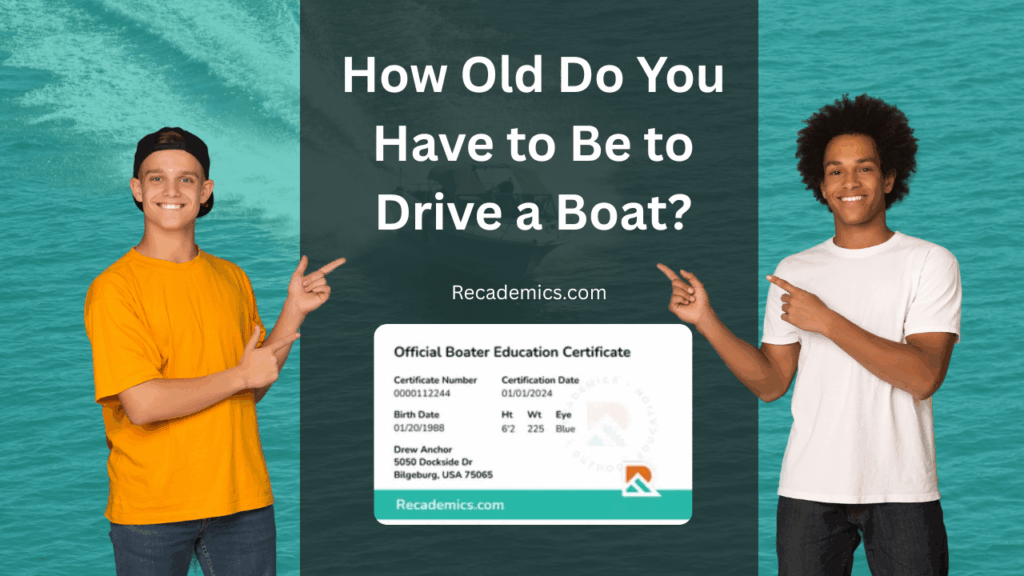Take an Official State-Approved Boater Safety Course
Ohio boating age rules depend on age, boat type, engine horsepower, and boater education. There is no single minimum age for all operators.
Under 12: Cannot operate motorboats independently
Under 16: May not operate a personal watercraft (jet ski) except under limited legal exceptions
Born on or after January 1, 1982: Must complete an approved Ohio boater education course to operate a powerboat over 10 horsepower

Ohio law sets specific limits for “child operators” and then layers education rules on top of those limits. Key points include:
Ohio’s “child operator” law defines supervision rules for young boaters.
Ohio sets special rules for personal watercraft such as Jet Skis, WaveRunners, and similar vessels. These crafts are considered powercraft and typically exceed 10 hp, so both the age and education rules apply.
Read: Do You Need a License to Drive a Jet Ski?
Operating a boat or PWC in violation of Ohio’s age or education rules can result in criminal and administrative penalties.
Meeting the minimum age and education rules is just the beginning. For young boaters, especially, these safety tips are essential on Ohio waters.
Meeting the minimum age and education rules is just the beginning. For young boaters, especially, these safety tips are essential on Ohio waters.

Recademics is a nationally recognized provider of outdoor recreation safety education, offering online certification courses for boating, hunter education, bowhunter education, off-highway vehicles (OHV/off-road), snowmobiles, and personal watercraft (PWC). Our courses are built around nationally established standards and regulatory frameworks, with alignment to NASBLA (boater education) and IHEA-USA (hunter and bowhunter education).
We currently have more than 26 state-approved courses issued directly by state agencies across the United States, including approvals in Texas, New York, Florida, California, Georgia, Alabama plus many more & with additional states pending. Every course is developed and maintained by subject-matter specialists, instructional designers, and state-reviewing authorities to ensure accuracy, compliance, and a high-quality learning experience.
Recademics focuses on clear instruction, accuracy, and straightforward pathways to certification for outdoor enthusiasts across multiple disciplines. Our goal is simple: make it easier to get certified, stay compliant, and enjoy the outdoors with confidence.
This is a FREE Boating course.